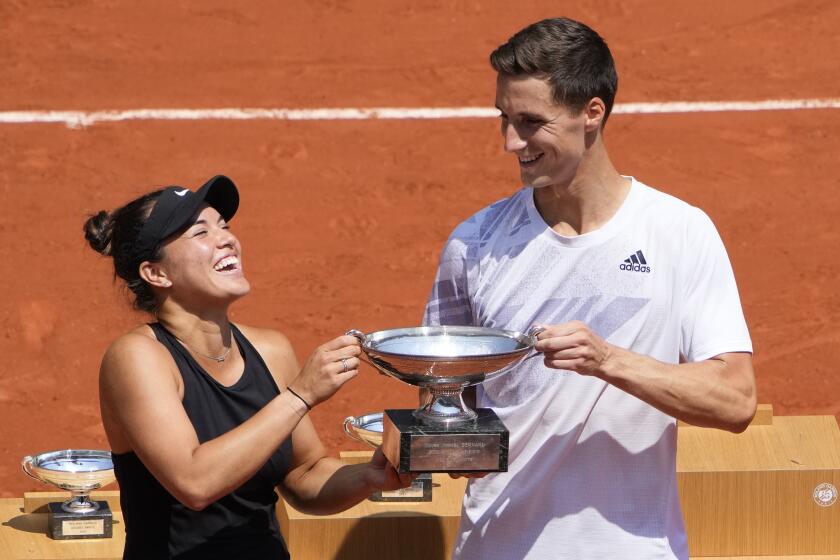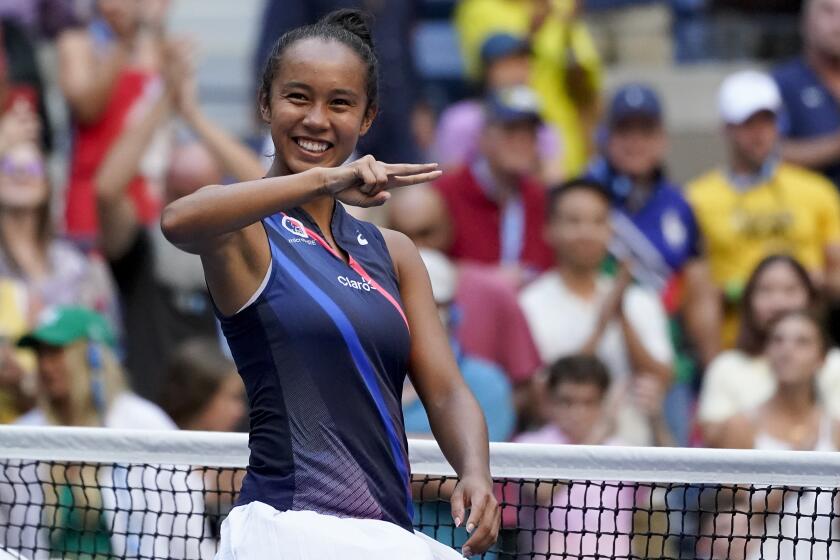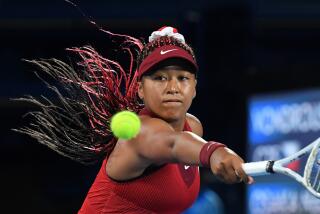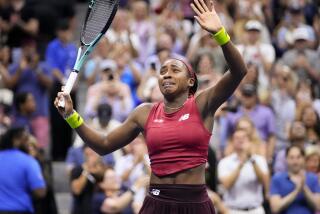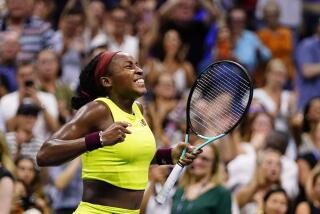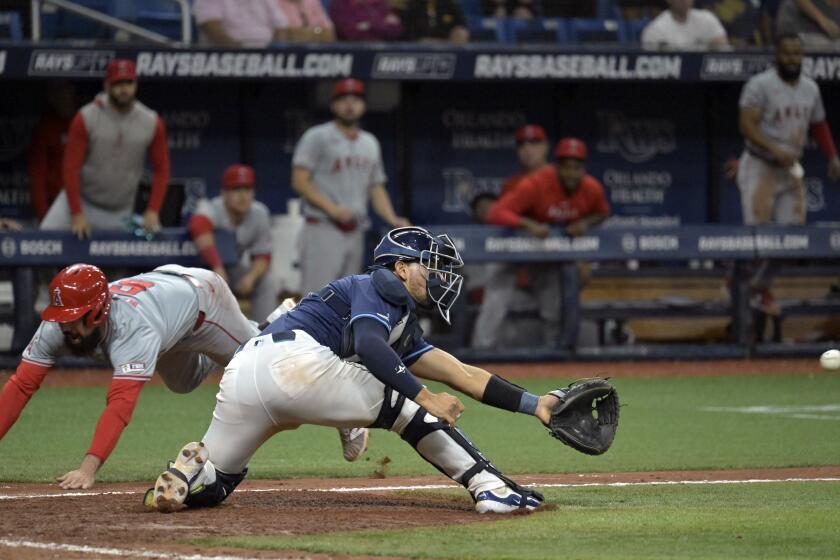Column: Hoping U.S. Open phenoms can enjoy the spotlight, avoid stress that hurt Naomi Osaka
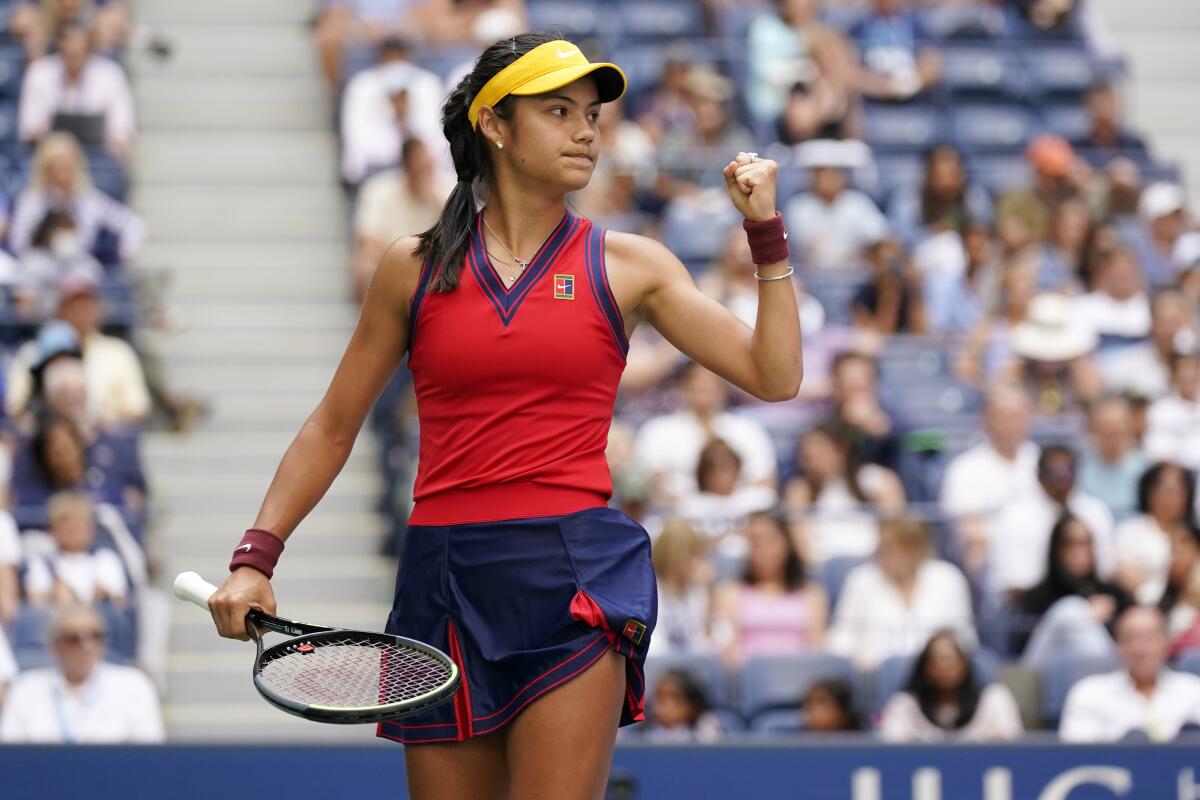
While we celebrate Emma Raducanu’s amazing journey from a nervous hopeful who had a flight booked home to London in case she didn’t graduate to the main draw of the U.S. Open to becoming the first qualifier to reach the semifinals of this tournament, it’s vital to remember that her path has been followed by many young tennis players but traveled safely and happily by few.
Raducanu, 18, and fellow semifinalist sensation Leylah Fernandez, 19, have earned every accolade they’ve received here. Fernandez took out two previous U.S. Open champions among the three seeded players she defeated to get this far; Raducanu had to get through qualifying and hasn’t lost a set in five rounds, though her quarterfinal opponent Wednesday, Olympic gold medalist and No. 11 seed Belinda Bencic, was the first seeded player she faced.
Admittedly caught off guard by the speed and power of the shots sent at her by Bencic, Raducanu adjusted quickly after having her service broken in the first game. “I didn’t overpress as much,” Raducanu said in explaining how she came back from 1-3 to win the opening set and then the match 6-3, 6-4.
“Yeah, I found a way to win, but it was very difficult to play against someone at such a high level.”
Bencic rued her mistakes — she committed three of her five double faults in the second set — and praised Raducanu’s toughness. Raducanu wouldn’t crack and let her back into the match. “She totally deserved to win. I just wish I could have made it a little bit harder and played better or play more my game,” Bencic said.
Bencic saved her sharpest insights in responding to a question about the impact on the sport of having two such young stars emerge so rapidly.
Palm Desert’s Desirae Krawczyk and mixed doubles partner Joe Salisbury advanced to the U.S. Open semifinals. Krawczyk has already won at the French Open and Wimbledon this year.
“I mean, I honestly think it’s great. It’s great for tennis. It’s obviously great stories,” Bencic said. “I just really hope that everyone will protect them and will hope the best for them and not try to, you know, kind of not destroy but, you know, put so much pressure and so much hype around them so it just gets too much.
“I just hope everyone will stay and will really hope the best for them so they can just develop and kind of in peace also a little bit,” Bencic added, punctuating her final words with a smile.
Amen. Sadly, that might turn out to be wishful thinking.
Tennis has a way of building up prodigies before chewing them up and spitting them out. Not all are fortunate enough to find help and regain solid footing in the sport or in life.
Not that the phenomenon is limited to tennis. Eating disorders and body-image issues have plagued figure skaters for decades, most recently derailing the career of two-time U.S. champion and 2014 Olympic team bronze medalist Gracie Gold. Gymnast Simone Biles’ withdrawal from the Tokyo Olympic team competition and several individual events to protect her mental and physical well-being drew international attention and started discussions about the importance of removing the stigma that has surrounded mental health issues and making information and treatment available to those who need and want it.
The intensity of the pressure and expectations heaped on young athletes can be frightening, and not all of them have family, friends or medical professionals to help them handle the escalating demands fame brings. It would be tragic if the fairy tales being lived by Raducanu and Fernandez become cautionary tales.
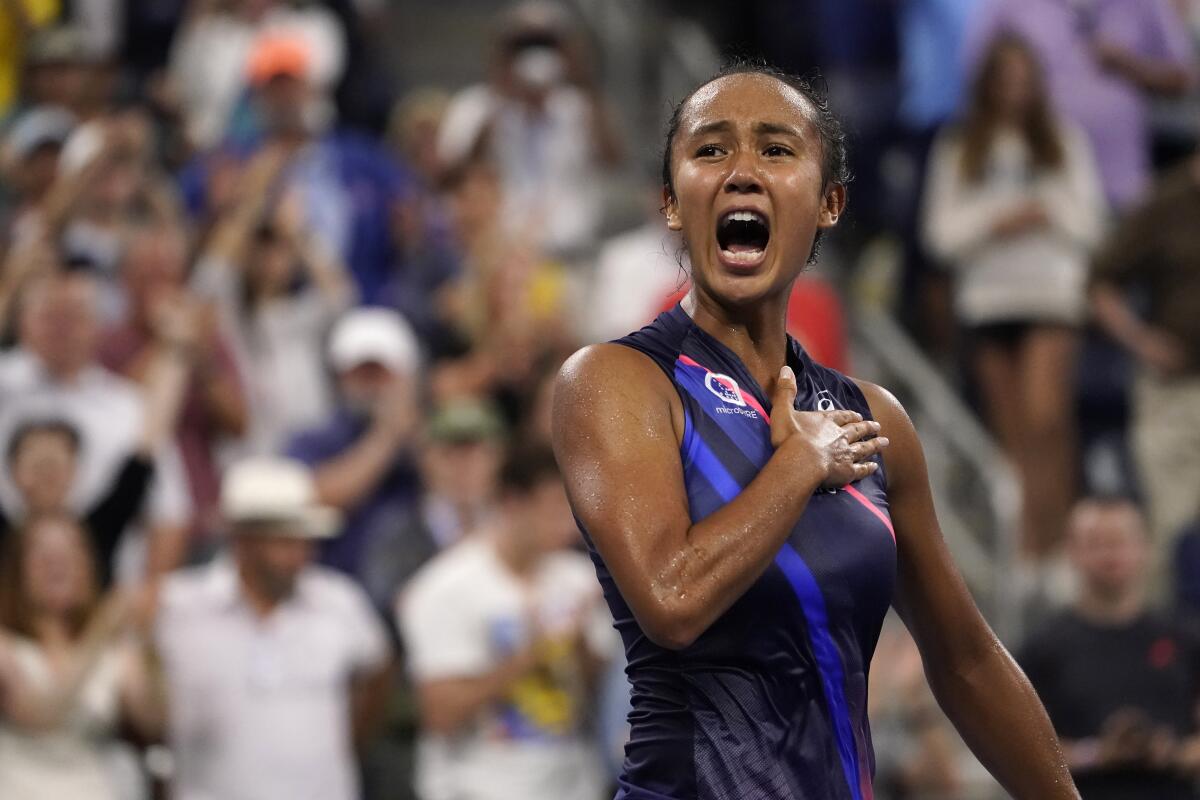
Any discussion of granting young tennis players relative peace of course brings to mind Naomi Osaka’s struggles. A four-time Grand Slam singles champion at 23, she was fined by officials at the French Open this year for avoiding mandatory postmatch interviews out of fear they’d worsen her insecurities about her game. Soon after, she withdrew from the tournament and said she has been battling depression since 2018. She skipped Wimbledon and took a break of about six weeks. She returned for the Olympics, where she had the honor of lighting the cauldron before the Games but lost in the third round.
She became tearful several times after she was upset by Fernandez in the third round at the U.S. Open. “I think I’m going to take a break from playing for a while,” Osaka said. She is among the announced entrants for the BNP Paribas Open next month at Indian Wells, but that could change. Fernandez also is on the entry list.
Osaka’s breaks have a prominent precedent. World No. 1 Ashleigh Barty, a precocious junior champion and idol in her native Australia, stepped away from competition for about 18 months starting in 2014. She went fishing. She coached recreational players. She played cricket for the Brisbane Heat of the wonderfully named Big Bash League and went out for a beer after games, something she could never do while playing tennis.
Barty has said she got medication and therapy during that time. She keeps a tight, trusted group around her. She also makes a point of listing the positive aspects of her play in each postmatch news conference, even when she loses. Since her return, she has won the 2019 French Open title and, this year, fulfilled a dream by winning the Wimbledon women’s championship.
Leylah Fernandez listened to her coach — her father, Jorge — and kept her dream alive with an upset of Elina Svitolina in the U.S. Open quarterfinals.
On Thursday, Fernandez will play No. 2 Aryna Sabalenka in the first women’s semifinal and Raducanu will face No. 17 Maria Sakkari of Greece, who lost only two points on serve in the first set of her 6-4, 6-4 victory over No. 4 Karolina Pliskova. Fernandez and Raducanu have known each other since they were pre-teens, and they shared some cupcakes to celebrate Fernandez’s birthday on Monday.
On Thursday, Fernandez will play No. 2 Aryna Sabalenka in the first semifinal and Raducanu will face
“The fact that we are both here in the semifinals of the U.S. Open after having played each other from the early days, it’s very cool to see just how far we have come,” Raducanu said.
May they continue their parallel journeys with much success, a minimum of stress and all the joy they’ve shown here during their first steps into the spotlight.
More to Read
Get our high school sports newsletter
Prep Rally is devoted to the SoCal high school sports experience, bringing you scores, stories and a behind-the-scenes look at what makes prep sports so popular.
You may occasionally receive promotional content from the Los Angeles Times.

